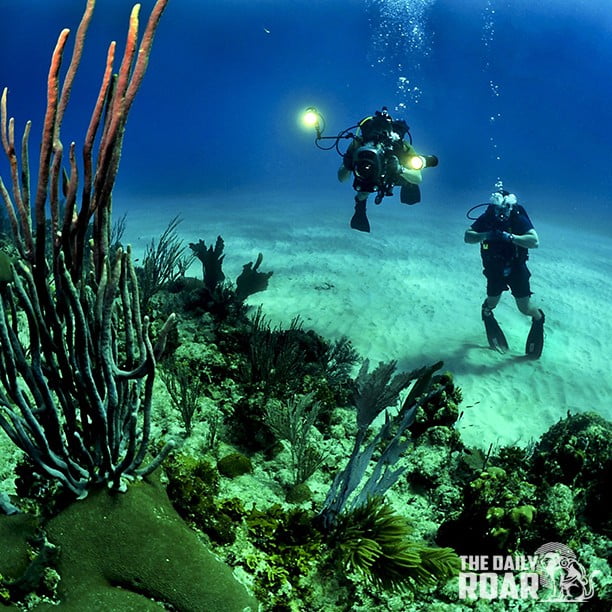If you’re planning a scuba diving trip for the first time, you’re probably confused about a lot of things. Namely, what equipment to take, how many people to take, what safety measures to keep in mind, among other things. We’re here to tell you that there is absolutely no piece of advice that can make sure your journey goes smoothly. In every first trip, there are multiple surprising and unpredictable factors that can impact you.
That being said, scuba diving is going to be one of the most enjoyable and entertaining activities you experience in your life. Just making sure you’re not overwhelmed by the experience and remember to have a good time, here are a few tips to help you with your first scuba diving adventure:
1. Get the Scuba Diving Equipment Kit
While there is no universal law of having everything with you if you’re going for scuba diving for the first time, you still need to keep the entire kit with you. Go to any swim gear shop and you will be able to find all kinds of kits relevant to your sport. The most common items which will be found in your kit include a snorkel, oxygen tank, wet and dry suit, wrist monitor, etc. You will find all about the kind of snorkel masks on this link.
Make sure you try everything in your kit before making the final purchase. Try on everything and imagine yourself swimming across the sea with mysterious underwater creatures!
2. Always Go with a Group
Make sure you have a group of friends to go instead of trying out the adventure alone. When you have two to three people alongside, the experience becomes more fun and isn’t scary. Going for an adventurous journey alone can rather end up being the opposite for you. You can go with your best friends, your partner or even with your work friends who are willing to try on crazy things with you!
3. Take Training Classes
No matter how good of a swimmer you are, you should always take a few training sessions before diving into the natural sea. You need to make sure you get at least a week’s worth of classes to help you adjust to the environment and understand how different it can be from the conventional swimming.
Training will help you control your body when exposed to unpredictable circumstances. Make sure your friends also take the same training sessions with you so all of you are capable of understanding each other. People who train with you are well equipped to responding in your favor in case of an emergency or overwhelming situation.

4. Keep the Body Hydrated
A lot of energy and strength is being utilized when you’re under the sea and swimming. You may not realize it immediately, but there are chances you will be able to feel cramps after a few days. In order to avoid a serious injury to the body, you need to make sure you stay hydrated. Keep a water bottle with yourself. Just before diving in the water, you must drink at least 200 ml of water. This will help you sustain body’s energy level and balance. You can even take a break during your trip to head over to the surface to drink some water.
5. Avoid Physical Exertion
In order to avoid any resting cramping or injuries to the muscles, you need to make sure you remain composed and do not exert yourself physically right after your swim. Your body will take at least 48 hours to adjust and become normal if you’re not a swimmer. If you’re a regular swimmer, you need to rest the body for at least 24 hours before heading off for a swim again.

























